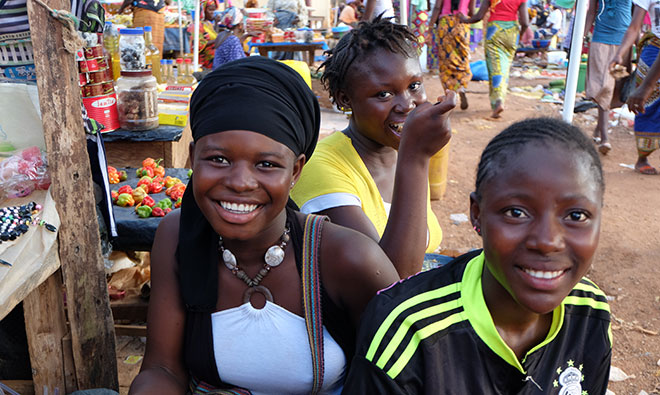
SPRING recently conducted a nutrition assessment in Guinea to contribute to post Ebola virus disease (EVD) response efforts. Before the Ebola outbreak, Guinea faced chronically high levels of undernutrition and food insecurity. About 26 percent of children 0-59 months are chronically malnourished in Guinea, and about one-third of the population is food insecure. The outbreak of Ebola in early 2014 limited movement within and outside of the country, affected market prices and access, resulted in reduced healthcare seeking behaviors, disrupted normal agricultural practices, interrupted harvesting and decreased agricultural yields, and continues to impact the country.
SPRING’s nutrition assessment focused on the prefectures of Faranah and Kissidougou, and revealed key challenges and opportunities related to community members’ nutritional status.
Key challenges: Poverty, the hunger season, poor agricultural productivity, lack of dietary diversity and market choices, limited food plate and feeding patterns, poor infant and young child feeding practices, limited hygiene and sanitation, lack of access to information, and insufficient public services as underlying causes of poor nutrition.
Key opportunities: Adaptability of community members, variety of agricultural crops, interest in educational resources, motivation of local staff, recognition of nutritional challenges, and strength of local partners.
Currently, SPRING is in the process of designing programs in Guinea to address needs identified through its assessment and capitalize on the opportunities present within the country and within certain communities.